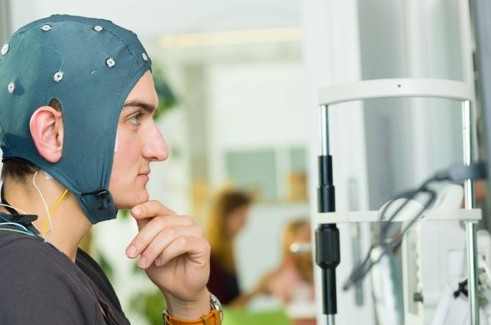Using biomarkers to measure the action of next-generation CNS drugs
New drugs are currently being developed to slow disease progression in neurodegenerative disorders such as Alzheimer’s disease, Parkinson’s disease, and amyotrophic lateral sclerosis (ALS). However, it is often not possible to measure the pharmacodynamic effects of these compounds in healthy subjects. This can be solved by using a challenge model, in which a symptom is temporarily and safely induced in a healthy subject. For example, to measure the effects of cholinergic drugs on cognition, a healthy subject can be given an anticholinergic compound (e.g. scopolamine or mecamylamine), leading to a temporary decrease in cognitive performance. The test compound can then be administered, and its ability to restore cognitive function can be measured.
Genotyping 4000 Parkinson’s patients
Alzheimer’s disease
Additionally, together with these clinics we can provide specialised diagnostic methods, including:
- Standard diagnostic CSF sampling (Aβ1-42, tau, p-tau)
- 36-h CSF sampling
- Amyloid PET (PIB, florbetapir, flutemetamol)
- FDG PET
- Hippocampal volumetry (MRI)
- Pharmacological challenge models
Multiple sclerosis
- MTR (magnetisation transfer ratio) for demyelination
- DTI (diffusion tensor imaging)
- H/M ratio (EMG) for spasticity
- Double inversion recovery 3T MRI imaging for detection of MS lesions
Patient populations
- Parkinson's disease
- Dementia
- Lewy body dementia
- Frontotemporal dementia
- Vascular cognitive impairment
Epilepsy
- Essential tremor
- Migraine and cluster headaches



